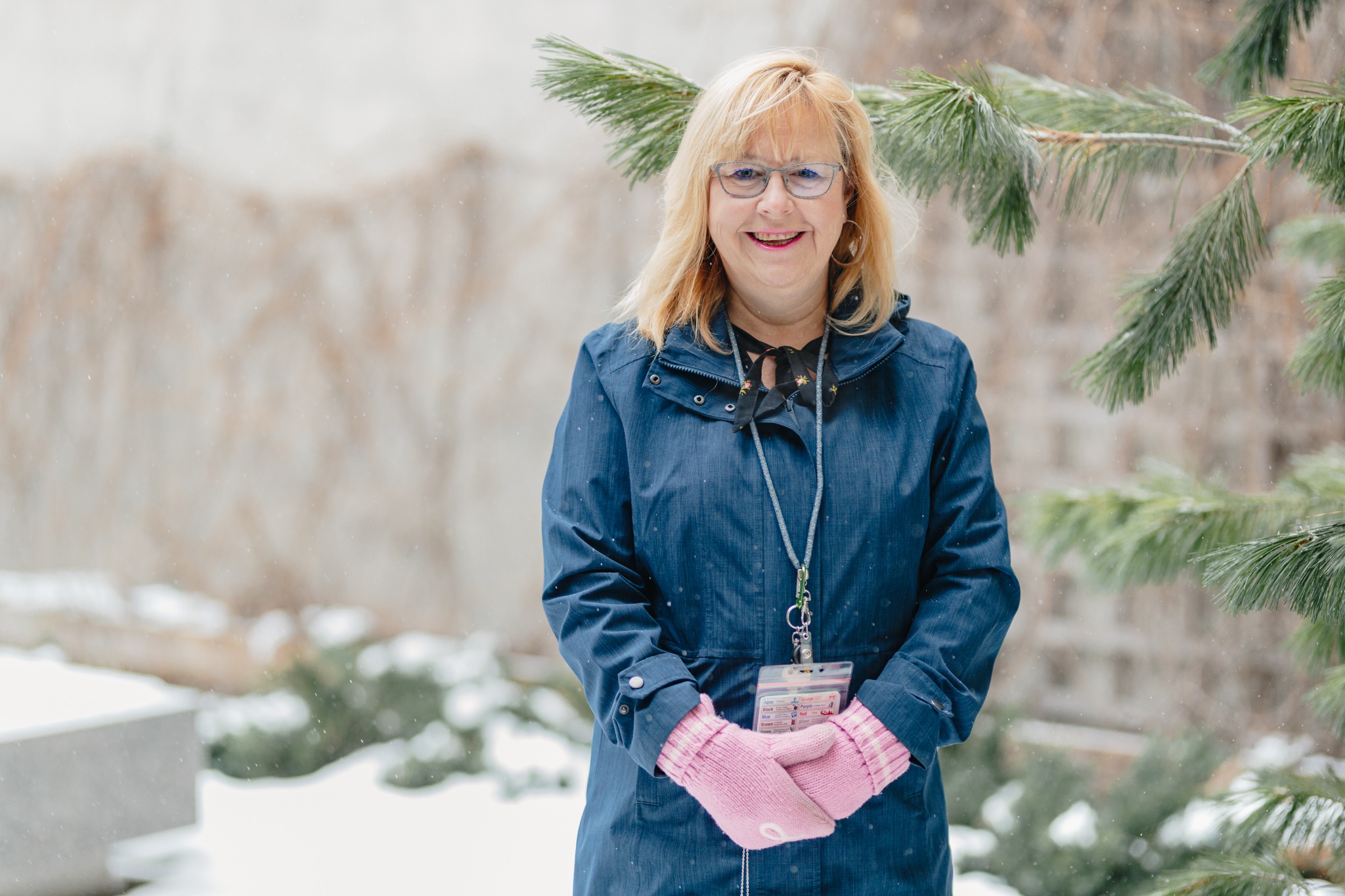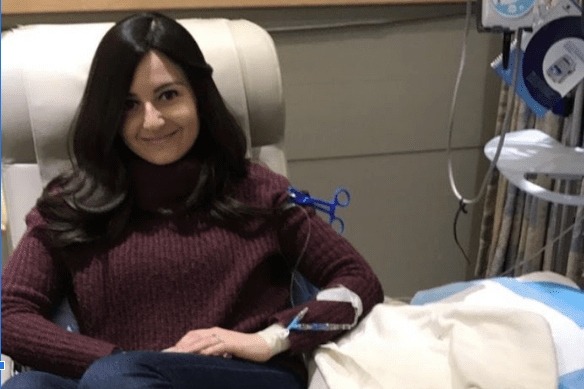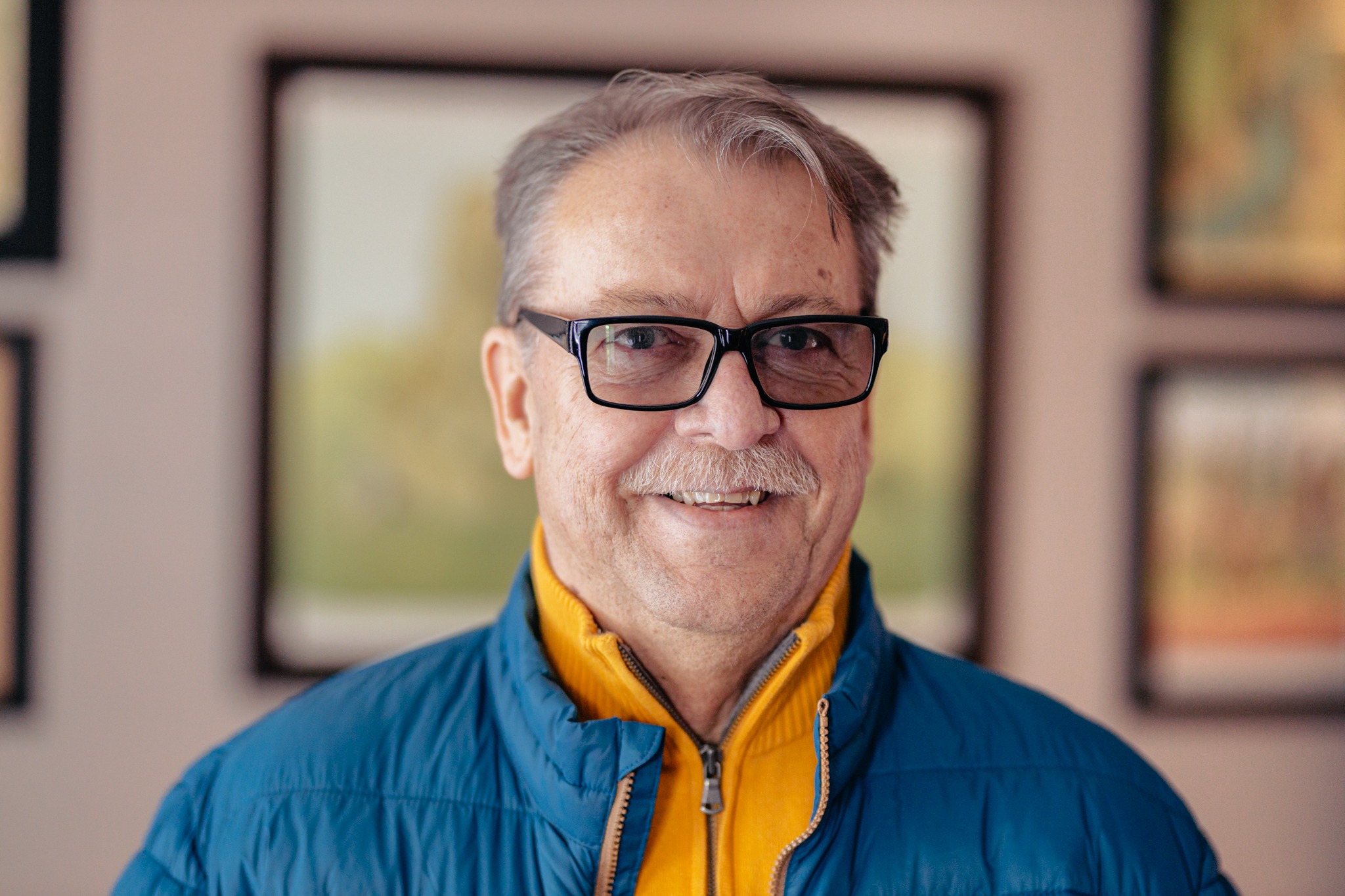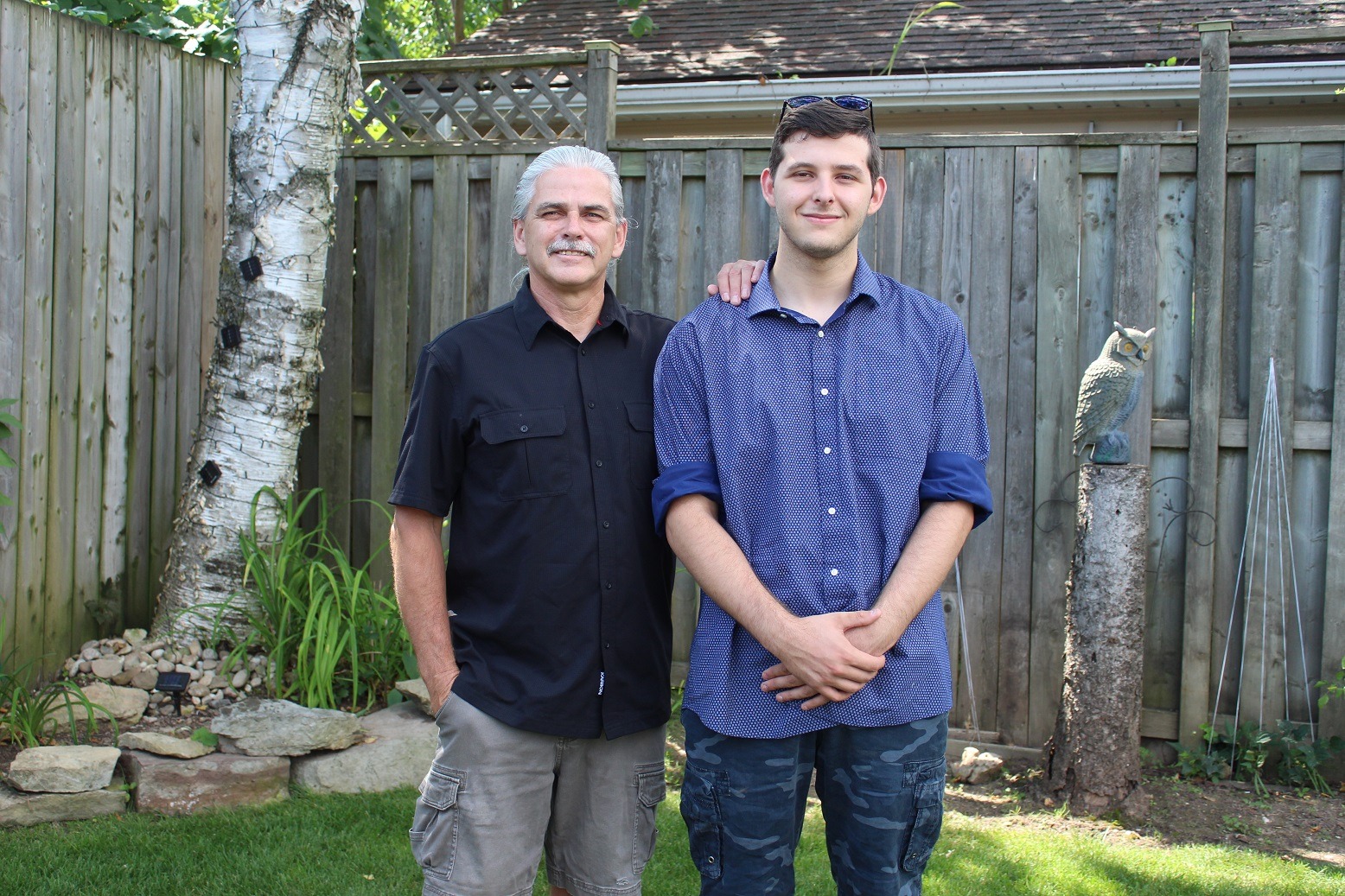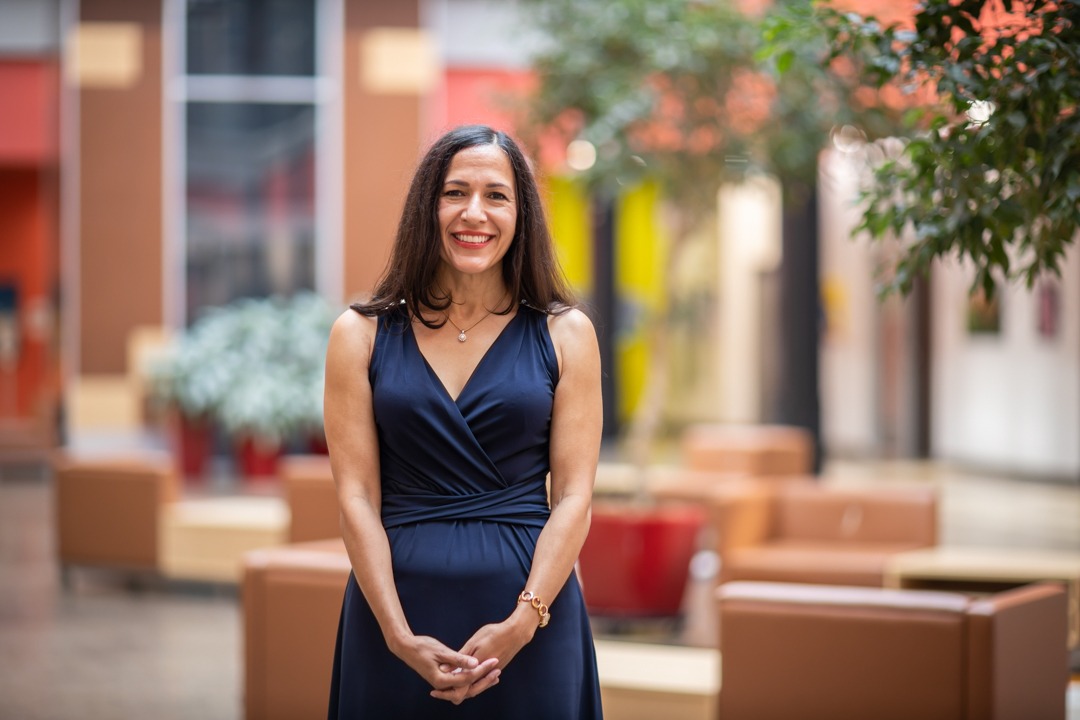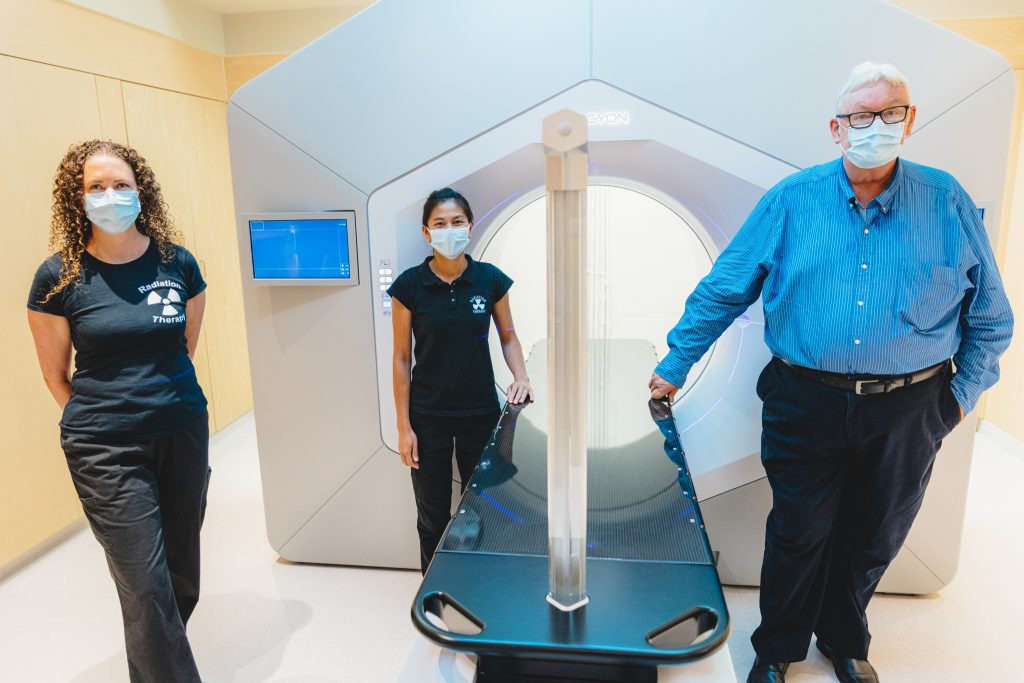
New radiation therapy machines deliver treatment four times faster
Hamilton Health Sciences (HHS) is the first hospital in Canada to introduce Halcyon linear accelerators.
“Our two new Halcyon machines deliver radiation therapy to cancer patients four times faster than the machines they replaced,” says HHS radiation oncologist Dr. Ian Dayes. “For example, an eight-minute treatment with the previous machines would take just two minutes using a Halcyon machine.”
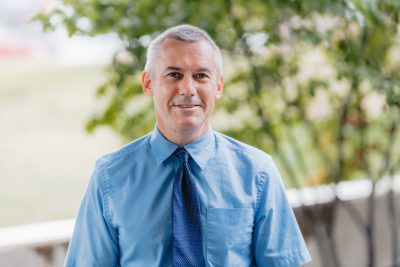
Dr. Ian Dayes, radiation oncologist
HHS’ state-of-the-art radiation treatment program, located at the Juravinski Hospital and Cancer Centre (JHCC), has been replacing one to two machines every year and these are the latest to be added to the program. The typical lifespan of a linear accelerator is 10 to 12 years, and the new Halcyon linear accelerators replaced aging machines.
Halcyon linear accelerators look similar to a CT or MRI scanner, with a bed that slowly moves patients into a circular part of the machine for treatment. The Halcyon machines’ speed and efficiency have many benefits, including increased patient comfort and the potential to reduce wait times.
“The machines they replaced could each treat 30 to 35 patients in a 10-hour work day, while each Halcyon machine has the potential to treat 50-plus patients a day,” says Gabe Menjolian, HHS’ clinical leader for radiation therapy.
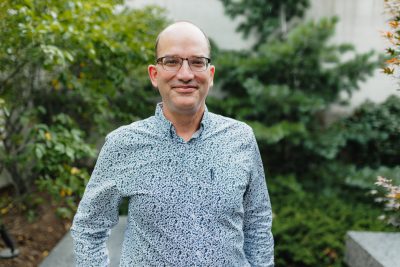
Gabe Menjolian, HHS’ clinical leader for radiation therapy
Specialized equipment
HHS has 10 linear accelerators for radiation therapy. Two are the new Halcyon machines and eight are another type of machine called TrueBeam.
“We’re very fortunate at HHS to have the latest technology in our radiation treatment program.”
The Halcyon machines are well-suited for treating prostate and gynecological cancers as well as cancers of the head, neck, lungs and soft tissue tumours. The TrueBeam machines are best for treating many other cancers, such as breast cancers and very small cancer sites requiring high-precision radiation.
The hospital’s radiation treatment program also includes an orthovoltage machine for treating skin lesions, three CT simulation machines to help radiation oncologists design the most precise treatment plan, and an MRI machine for creating detailed images of organs and tissues, says Dr. Rob Hunter, director of medical physics at HHS.
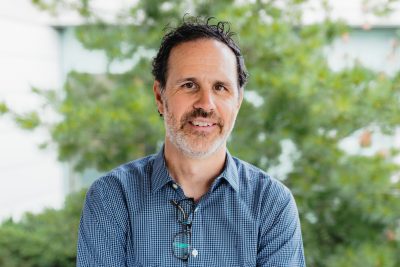
Dr. Rob Hunter, director of medical physics at HHS
The JHCC is also the only hospital in southern Ontario with a CyberKnife unit – the world’s first and only robotic radiosurgery system designed to treat tumours in areas including the brain, spine, lung, breast, prostate, head and neck. This non-invasive treatment doesn’t involve the cutting of tissue.
“We’re very fortunate at HHS to have the latest technology in our radiation treatment program,” says Menjolian.
High praise from patients and staff
Hamilton resident Brian Smith, 63, is one of the first patients in Canada to be treated with a Halcyon machine. He’s receiving radiation therapy for prostate cancer five days a week at the JHCC, for eight weeks. “The treatment itself takes a couple of minutes and I’m done,” says Smith.
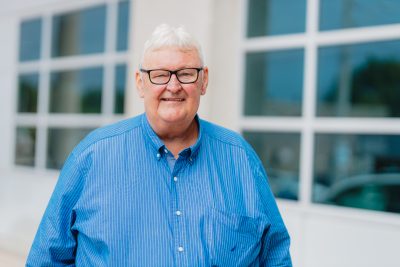
HHS patient Brian Smith
“It’s amazing. I listen to one song on the radio and I’m finished.”
The shorter treatment time makes it easier for patients to remain still and reduces discomfort, says Dayes. “Patients who are experiencing pain or have to be treated with a full bladder appreciate the faster treatment time.”
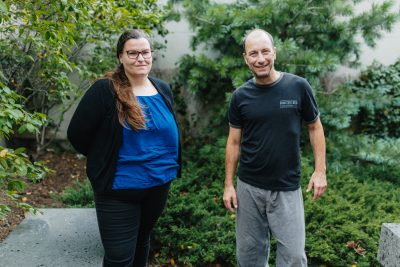
Radiation therapy planners Carrie Gerdes and Chris DiFrancesco have been trained on a new planning system specific to the Halcyon machines. These staff members plan a patient’s treatment in a process that includes computer modelling to help deliver most precise treatment.
Halcyon’s bed can be lowered to a more accessible height, making it easier for patients to get on and off. The treatment delivery is quiet, adding to patient comfort. The machine’s circular opening is extra-large, so patients don’t feel closed in.
Halcyon machines are also easier and more efficient for radiation therapists to use, requiring only nine steps from the beginning of treatment to the end, compared to about 30 steps with machines they replaced.
“The Halcyon machines have been very well-received by staff,” says HHS staff member Cara Dorland, the first radiation therapist in Canada to treat a patient using the machine. “It was exciting. The efficiency of the machine is mind-blowing.”
The machine’s design makes it easier to monitor patients during their treatment, adds radiation therapist Crystal Ho.
“Beyond the technology, the staff at the JHCC is exceptional,” says Smith, the cancer patient. “They have been so compassionate and kind to me. They’ve taken a very unhappy situation and made it extremely tolerable.”


